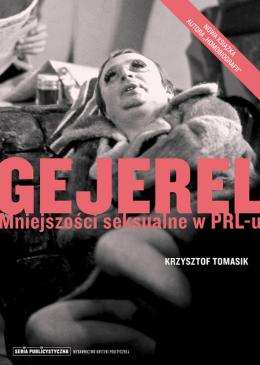
Press materials
Krzysztof Tomasik's book, Gejerel: Mniejszości seksualne w PRL (GRL: Sexual Minorities in the Polish People's Republic), is one of the first in-depth studies on the matter.
Tomasik notes that homosexuality was rarely referred to in public by the communist authorities, and if so, preferably in the context of the “decadent” West.
Technically, homosexuality was not in itself a crime in communist Poland, echoing pre-war legislation from 1932.
However, the author argues that in court cases where a defendant or plaintiff was revealed to be a homosexual, this information invariably worked against him or her, regardless of the charge.
Homosexuality during that period is portrayed by the author as very much an underground phenomenon. Nevertheless, society was not ignorant of it, and there were occasional gay caricatures in films.
“The idea was to laugh at it, as that's how it was handled in films, otherwise to ignore it,” reflected gay rights activist Wojciech Szot in a discussion about the book on Polish Radio.
However, there were secret police actions against gays, most notably “Action Hyacinth”, which was launched in 1985.
The nationwide operation was ordered by Minister of the Interior Czeslaw Kiszczak, with thousands of gays detained and interrogated across the country.
An extensive database was built up. However, the regime's precise motives remain unclear. The action took place when the AIDS scare was sweeping across the West, and gays were considered at high risk of catching the disease at that time.
On the other hand, it has been argued that the material was a rich source for blackmail, as has been frequently noted regarding the cases of some priests who were pushed into becoming informers.
Tomasik's book also highlights some of the first calls for acceptance of homosexuality.
Among these articles are Barbara Pietkiewicz's “Bitter Purple”, published in the Polityka weekly during the Solidarity Trade Union's push for civil rights in 1981, as well as Krzysztof Darski's “We are different”, which was originally published under a pseudonym.
There were some examples of a relative tolerance, within the eastern bloc, by the Polish communist authorities towards artistic works with a homosexual theme, however.
The movie Siegfried, by director Andrzej Domalik and released in 1984, for example, was based on a short story by Jaroslaw Iwaszkiewicz,k describing the emotional relationship, with homosexual overtones, between a young circus acrobat and an art connoisseur. (nh/pg)